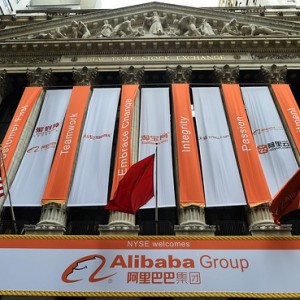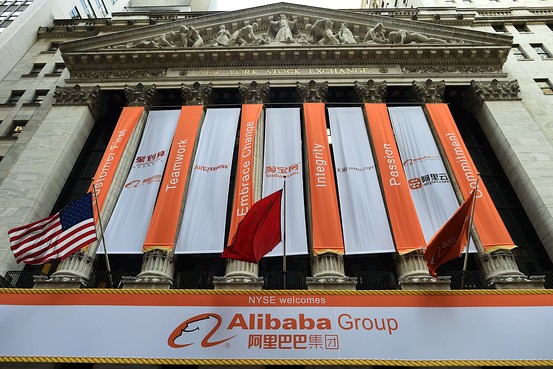The $21.8 billion Alibaba IPO was the largest in history and some predict it will be the largest ever. We talked to Turkey’s Muhsin Keskin, a Partner at Esin Attorney Partnership, a member firm of Baker & McKenzie, about his take on Alibaba, the market for cross-border IPOs and his view of the the current Turkish environment.
Can you talk a little about the Alibaba IPO?
It is officially the world’s largest-ever initial public offering. It is definitely an epic transaction – to see a Chinese e-commerce company valued at $163 billion raising $21.8 billion in just one bite! This is something that you can see once in a lifetime as a securities lawyer. Luckily, our generation has seen three of these giant deals lately: the 2010 public offering from the Agricultural Bank of China raising $22.1 billion in its debut on the Hong Kong Stock Exchange and a $19.7 billion deal by Visa in 2008.
The Alibaba IPO was huge in every sense. The per share price was $68 and it went up 38 percent in its debut, increasing Alibaba’s valuation to $220 billion. The underwriters also exercised the “green shoe” option by buying an additional 48 million shares from the company to cover stock they sold to meet high investor demand. Alibaba’s underwriters team was like an all-star lineup consisting of J.P. Morgan, Morgan Stanley, Deutsche Bank, Citigroup, Crédit Suisse and Goldman Sachs.
What draws you to this type of work?
I think it is the excitement and experience that you cannot get from other practices such as banking and mergers and acquisitions. When you are working on an IPO, irrespective of whom you are representing, the issuer, the selling shareholders or the underwriters, you get to know the issuer to its thinnest capillaries. You understand the company’s business and the industry it is operating in. You are not just a lawyer anymore! Turkish lawyers do not generally know much about financials, it is the only practice that makes you knowledgeable about the financial/business aspects of the transaction you are working on.
Also, the excitement comes from the time constraints. IPOs always have tight deadlines as the financials become rubbish once the 135-day under Rule 144A elapses, and you are, therefore, running against time. Your real counterparty is the deadline! So all involved parties, the issuer, the issuer’s counsel, the underwriters and their counsel, auditors, other advisors, cooperate and help each other to achieve the deadlines.
What obstacles and challenges have you faced with other cross-border IPO’s? 
Cross-border IPOs in the Turkish market have always been challenging. Although much improved in the last 10 years, Turkish disclosure obligations and corporate governance requirements are less extensive than certain jurisdictions in the European Union, the U.S. or other developed economies.
The standards of corporate governance expected by Turkish laws are not as high (or cover the same areas) as those set out by the rules of other jurisdictions such as the United States or the United Kingdom.
This has been a challenge for the Turkish lawyers working on international IPOs of Turkish issuers. As these deals have included an international offering document (such as prospectus, offering circular and offering memorandum) for sale under Rule 144A and/or Reg S, and a Turkish offering document for the public offering taking place in Turkey, Turkish lawyers have been struggling to find the right balance between the disclosures made under these two separate sets of documents. The gap between the Turkish offering circular and the international offering circular is narrowing though. Effective from the beginning of 2013, the Turkish Capital Markets Board changed its standards for the Turkish offering circular and the new offering circular template is almost a translation of the European prospectus. Also, the Turkish Capital Markets Board started requesting an undertaking from the issuers that the disclosure in the Turkish offering circular is as extensive as the disclosure in the international offering documents.
Another challenge has been the controlling shareholders’ reluctance to implement corporate governance structures such as setting up the committees and other functions that might increase the international stock investors’ appetite to invest into the issuer, and to give away the control of the company to a certain extent. This has been another test for Turkish capital markets lawyers to find the right balance between the controlling shareholders’ will and the expectations of the international institutional buyers.
What other trends or developments are visible on the horizon in the Turkish legal market?
Turkish capital markets have always been very fragile. Even at its best, which was from 2005 to 2008, you could not expect to see more than four or five cross-border IPOs of Turkish issuers a year. Since the 2008 crisis, this number has dropped to one or two deals a year. So you are lucky enough if you close a cross-border IPO in any given year.
This year was not a good year in this respect. The TAI IPO was put on hold and there has been no development on the transactions that were supposed to be in the pipeline for 2014. The only deal on the market is the IPO of Avivasa, which is the life insurance and private pension joint venture of Aviva and Sabancı Holding. I am not sure if this deal will happen in 2014 or be pushed to the first quarter of 2015. There are a handful of deals that are expected to be in the pipeline for 2015, such as the SPO of Finansbank, but I do not see any reason to be optimistic about the next year’s look for the Turkish capital markets.
It has been said that the Alibaba IPO will be the biggest in history. What other projects do you envision from here?
For the Turkish cross-borders IPOs, I am expecting two major transactions in the next couple of years. The first one is the IPO of TAI, Turkish Aerospace Industries, which is currently on hold and the other is the IPO of Ziraat Bank, the largest Turkish bank.








